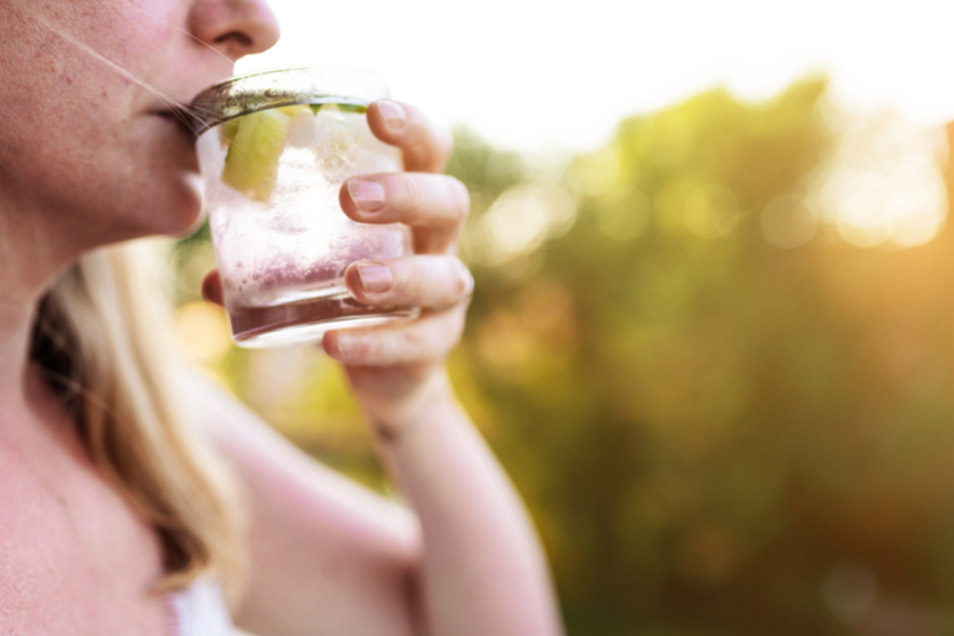When dealing with stressful days or tense situations, a glass of wine or beer may seem tempting to calm your nerves.
However, even moderate use of alcohol can present issues for some people. It may be easier for those struggling with anxiety to develop an unhealthy relationship with this particular way of coping.
"Unwinding" with Alcohol
There's some truth that alcohol reduces stress. Alcohol is a depressant and a sedative that impacts the body's central nervous system. The sedative effect can create a sense of euphoria and make it seem that it provides you with some relief from stress and anxiety. The effects of alcohol are similar to those experienced by anti-anxiety medications.
Unwinding with alcohol isn't inherently dangerous under the right circumstances. But over time, your tolerance grows to alcohol's 'de-stressing' effects and can make stress and anxiety more challenging to cope with.
Physical Consequences: Chronic alcohol use can lead to dependence and cause physical harm to the body (including the brain, liver, and heart).
Mental Health Consequences: The long-term effects of alcohol can cause or worsen symptoms of an anxiety disorder. The relaxed feeling you get from a drink can often be attributed to your blood alcohol content (BAC). A rise in BAC leads to temporary excitement, followed by feelings of depression as it falls.
Alcohol Use and Anxiety Disorders
One theory to explain why people with anxiety turn to alcohol is known as the "tension reduction hypothesis." The theory suggests that alcohol is used as a self-medicating way to reduce anxiety and stress levels.
However, someone who drinks alcohol to relieve anxiety may drink more because they expect alcohol will provide a sense of relief from their symptoms.
Social Anxiety
It's common for people with a social anxiety disorder to drink alcohol to cope with social interactions. In fact, about 20% of people with a social anxiety disorder also suffer from alcohol dependence. Besides needing alcohol to feel comfortable in social situations, some signs of dependence include:
- Having a drink in the morning to get going
- Heavily drinking four or more days per week
- Needing a drink at every social gathering
- Trouble stopping drinking
- Drinking five or more alcoholic beverages in a day
Can Alcohol Cause Anxiety?
There's limited supporting evidence that moderate drinking will cause anxiety; however, heavy drinkers may be more vulnerable to developing an anxiety disorder over time.
Increased anxiety is also a symptom of alcohol withdrawal. If you've consumed alcohol in large amounts for an extended period and suddenly stop, your anxiety can be exacerbated by the side effects of alcohol withdrawal. Other symptoms of alcohol withdrawal include:
- Trembling hands
- Sweating
- Heart rate above 100 beats per minute
- Hallucinations
- Nausea or vomiting
- Seizures
Treatment for Alcohol Abuse and Anxiety Disorders
Alcohol can cheer you up after a rough day or make you feel more relaxed, but it's not an effective treatment for anxiety.
There are several effective treatments for anxiety and alcohol use disorders, including:
- Individual therapy
- Group therapy
- Medication
If you have anxiety and use alcohol to cope, it's essential to seek support from a doctor or mental health professional. Our team of care providers is committed to helping you overcome anxiety and recover from addiction. We'll take the time to understand your unique circumstances and craft a treatment plan specifically for you. Contact us to schedule an appointment or call one of our facilities.
Resources
https://www.ncbi.nlm.nih.gov/pmc/articles/PMC6760384/
https://americanaddictioncenters.org/alcoholism-treatment/anxiety
https://pubmed.ncbi.nlm.nih.gov/2178706/
https://alcohol.stanford.edu/alcohol-drug-info/buzz-buzz/what-bac
Keywords: alcohol abuse counseling, substance abuse treatment, anxiety treatment, anxiety therapy


